Abstract
Maturation into adulthood, from 8 to 24 weeks of age, significantly influences the induction of oral tolerance in different strains of mice. Animals from strains which are susceptible to the induction of oral tolerance to ovalbumin (OVA) at 8 weeks of age become refractory at 24 weeks of age. Furthermore, in several strains, intermittent exposure to OVA exclusively by gavage resulted in high titres of circulating anti-OVA antibodies. However, the voluntary intake of similar doses of OVA at the same intervals failed to immunize mice of one of the most responsive strains, H-III.
Full text
PDF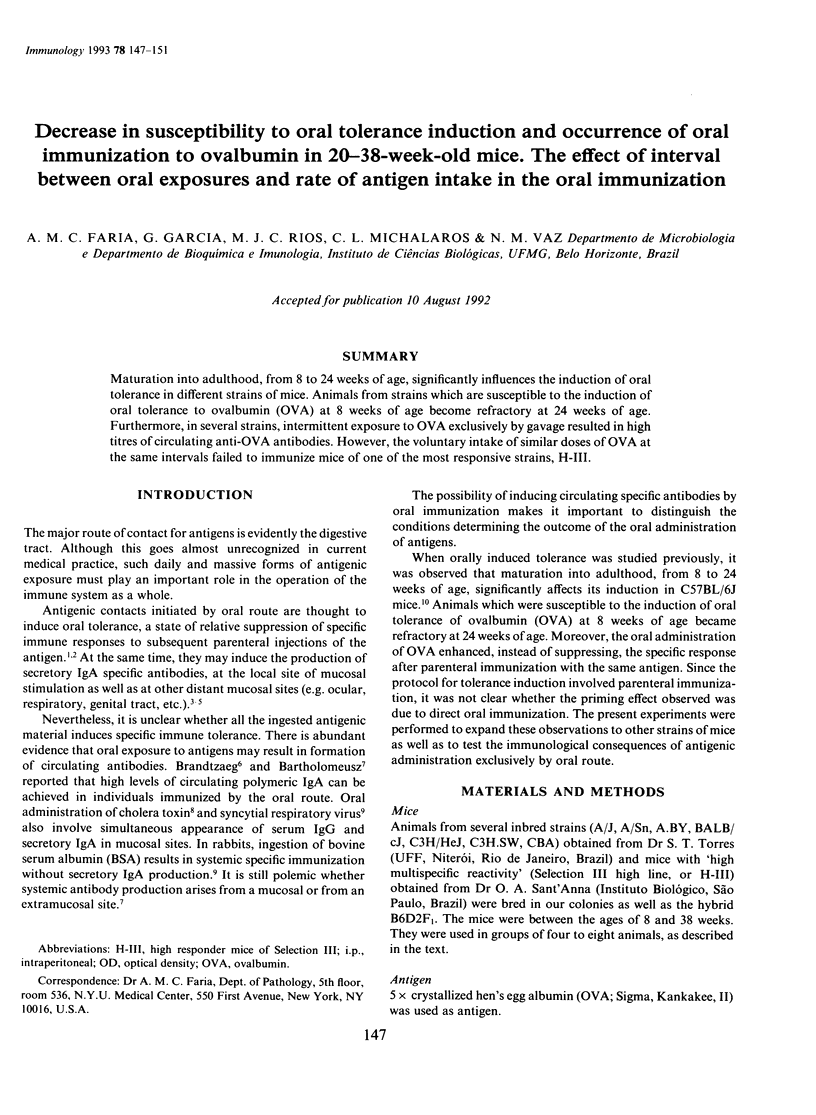
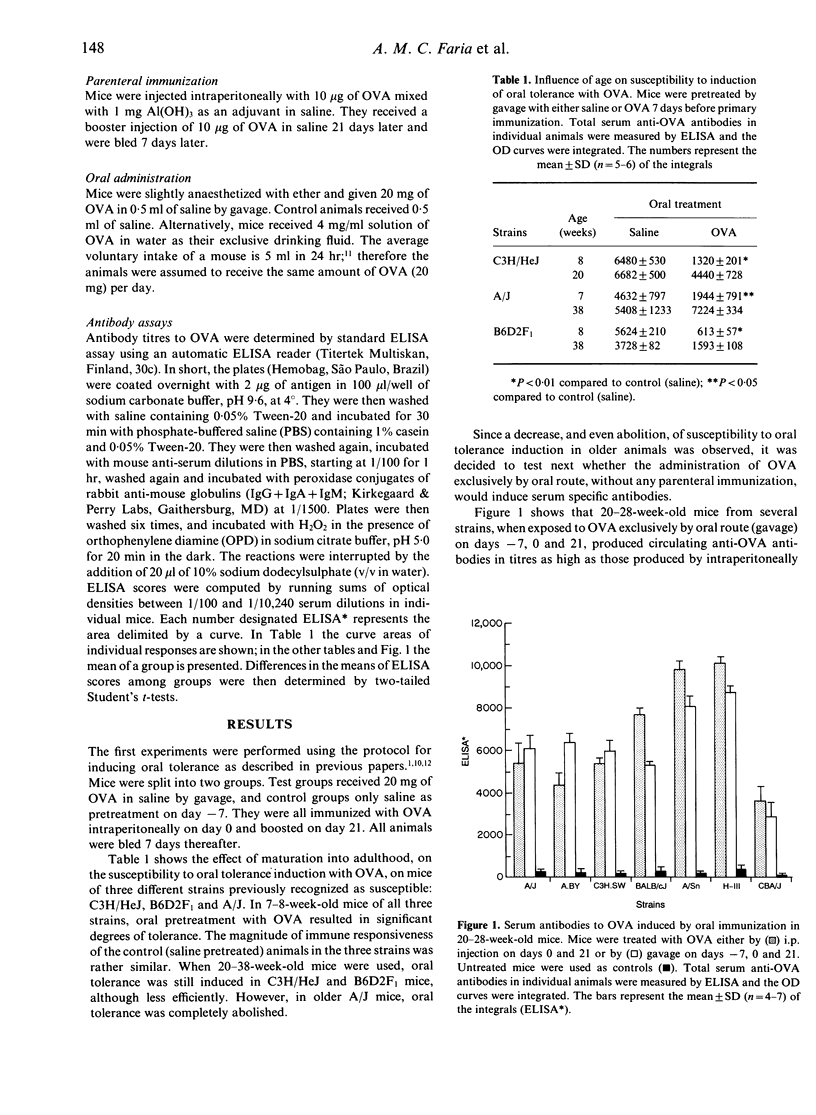
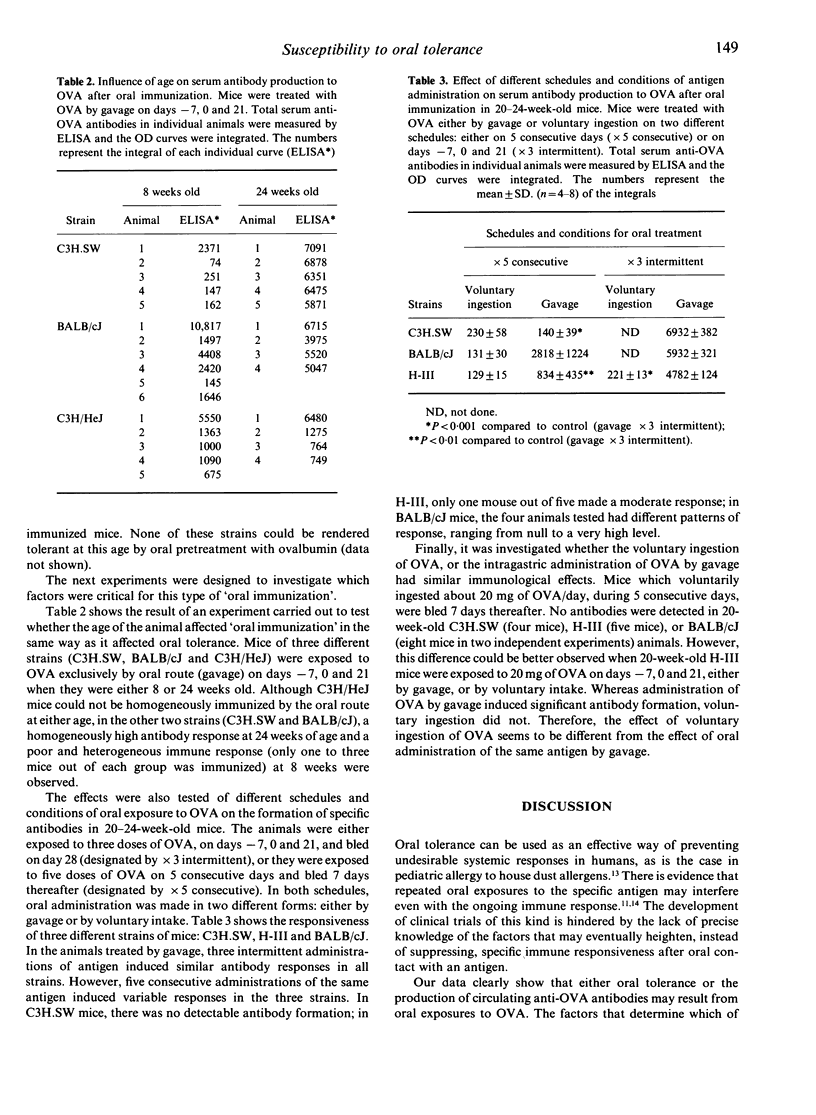
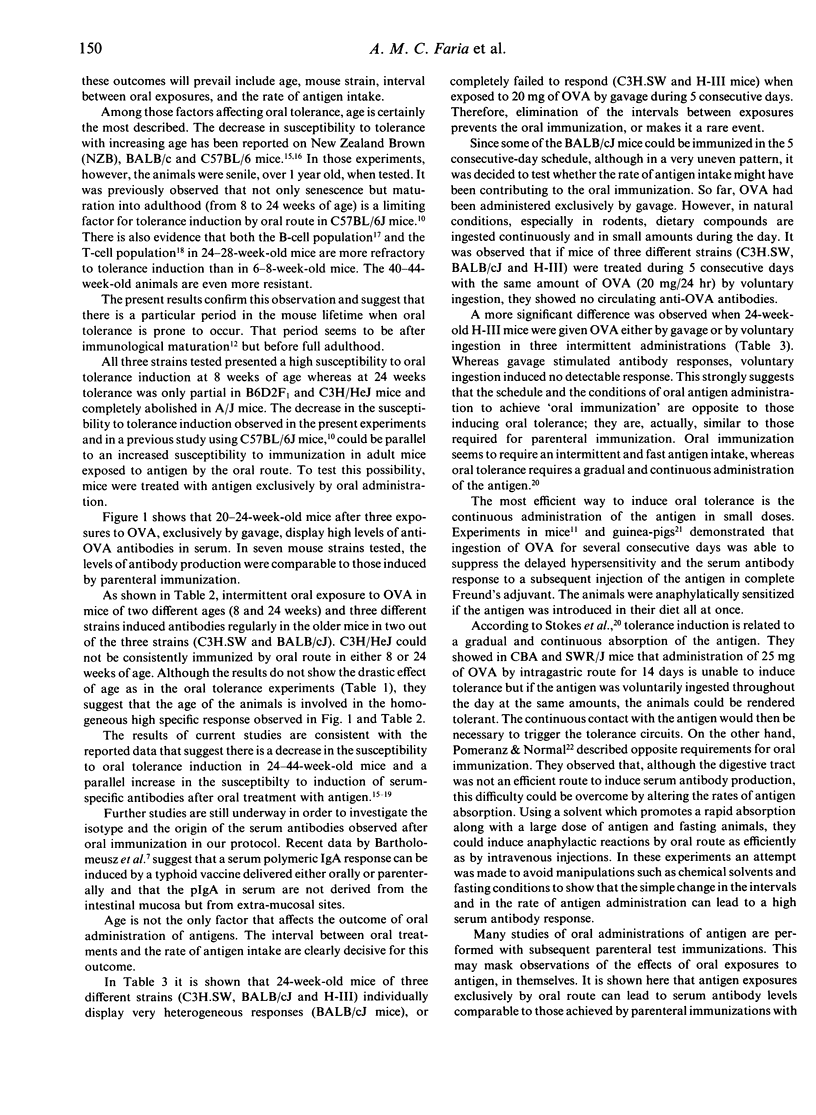
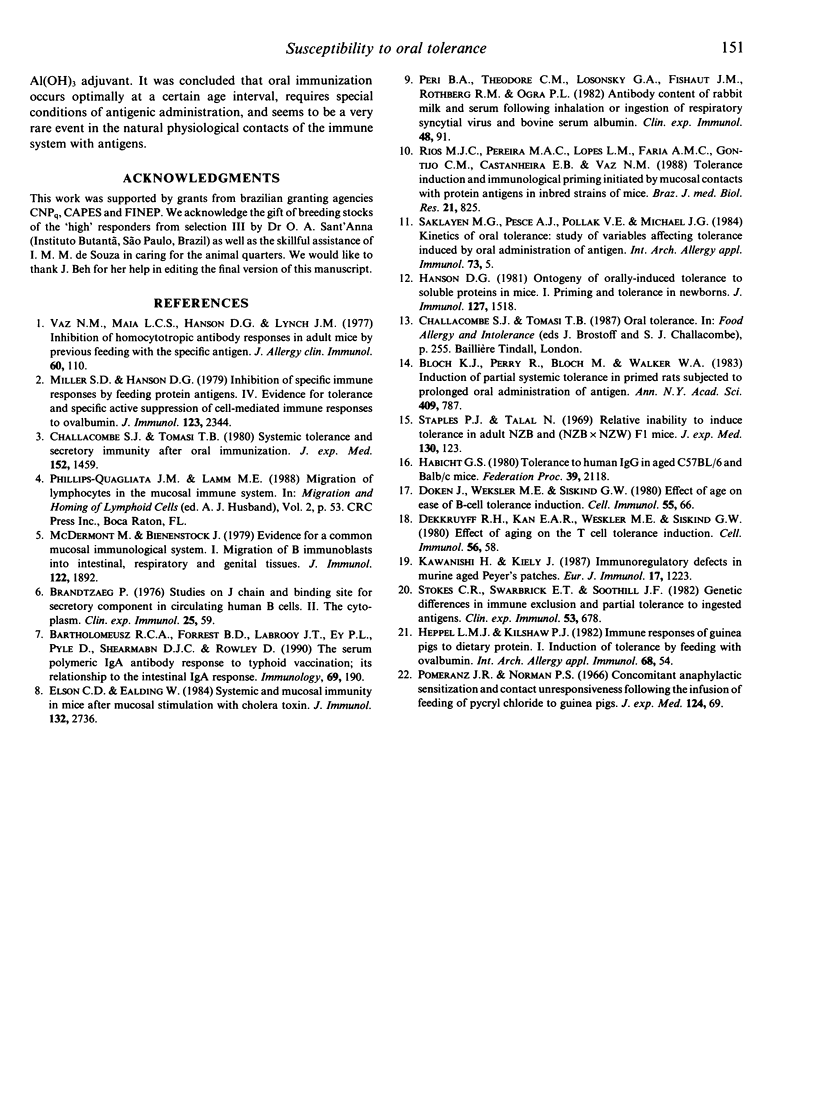
Selected References
These references are in PubMed. This may not be the complete list of references from this article.
- Bartholomeusz R. C., Forrest B. D., Labrooy J. T., Ey P. L., Pyle D., Shearman D. J., Rowley D. The serum polymeric IgA antibody response to typhoid vaccination; its relationship to the intestinal IgA response. Immunology. 1990 Feb;69(2):190–194. [PMC free article] [PubMed] [Google Scholar]
- Brandtzaeg P. Studies on J chain and binding site for secretory component in circulating human B cells. II. The cytoplasm. Clin Exp Immunol. 1976 Jul;25(1):59–66. [PMC free article] [PubMed] [Google Scholar]
- Challacombe S. J., Tomasi T. B., Jr Systemic tolerance and secretory immunity after oral immunization. J Exp Med. 1980 Dec 1;152(6):1459–1472. doi: 10.1084/jem.152.6.1459. [DOI] [PMC free article] [PubMed] [Google Scholar]
- DeKruyff R. H., Rinnooy Kan E. A., Weksler M. E., Siskind G. W. Effect of aging on T-cell tolerance induction. Cell Immunol. 1980 Nov;56(1):58–67. doi: 10.1016/0008-8749(80)90081-7. [DOI] [PubMed] [Google Scholar]
- Dobken J., Weksler M. E., Siskind G. W. Effect of age on ease of B-cell tolerance induction. Cell Immunol. 1980 Sep 15;55(1):66–73. doi: 10.1016/0008-8749(80)90137-9. [DOI] [PubMed] [Google Scholar]
- Elson C. O., Ealding W. Generalized systemic and mucosal immunity in mice after mucosal stimulation with cholera toxin. J Immunol. 1984 Jun;132(6):2736–2741. [PubMed] [Google Scholar]
- Hanson D. G. Ontogeny of orally induced tolerance to soluble proteins in mice. I. Priming and tolerance in newborns. J Immunol. 1981 Oct;127(4):1518–1524. [PubMed] [Google Scholar]
- Heppell L. M., Kilshaw P. J. Immune responses in guinea pigs to dietary protein. I. Induction of tolerance by feeding with ovalbumin. Int Arch Allergy Appl Immunol. 1982;68(1):54–59. doi: 10.1159/000233067. [DOI] [PubMed] [Google Scholar]
- Kawanishi H., Kiely J. Immunoregulatory defects in murine aged Peyer's patches. Eur J Immunol. 1987 Sep;17(9):1223–1228. doi: 10.1002/eji.1830170902. [DOI] [PubMed] [Google Scholar]
- McDermott M. R., Bienenstock J. Evidence for a common mucosal immunologic system. I. Migration of B immunoblasts into intestinal, respiratory, and genital tissues. J Immunol. 1979 May;122(5):1892–1898. [PubMed] [Google Scholar]
- Miller S. D., Hanson D. G. Inhibition of specific immune responses by feeding protein antigens. IV. Evidence for tolerance and specific active suppression of cell-mediated immune responses to ovalbumin. J Immunol. 1979 Nov;123(5):2344–2350. [PubMed] [Google Scholar]
- Peri B. A., Theodore C. M., Losonsky G. A., Fishaut J. M., Rothberg R. M., Ogra P. L. Antibody content of rabbit milk and serum following inhalation or ingestion of respiratory syncytial virus and bovine serum albumin. Clin Exp Immunol. 1982 Apr;48(1):91–101. [PMC free article] [PubMed] [Google Scholar]
- Pomeranz J. R., Norman P. S. Concomitant anaphylactic sensitization and contact unresponsiveness following the infusion or feeding of picryl chloride to guinea pigs. J Exp Med. 1966 Jul 1;124(1):69–80. doi: 10.1084/jem.124.1.69. [DOI] [PMC free article] [PubMed] [Google Scholar]
- Rios M. J., Pereira M. A., Lopes L. M., Faria A. M., Gontijo C. M., Castanheira E. B., Vaz N. M. Tolerance induction and immunological priming initiated by mucosal contacts with protein antigens in inbred strains of mice. Braz J Med Biol Res. 1988;21(4):825–836. [PubMed] [Google Scholar]
- Saklayen M. G., Pesce A. J., Pollak V. E., Michael J. G. Kinetics of oral tolerance: study of variables affecting tolerance induced by oral administration of antigen. Int Arch Allergy Appl Immunol. 1984;73(1):5–9. doi: 10.1159/000233428. [DOI] [PubMed] [Google Scholar]
- Staples P. J., Talal N. Relative inability to induce tolerance in adult NZB and NZB-NZW F1 mice. J Exp Med. 1969 Jan 1;129(1):123–139. doi: 10.1084/jem.129.1.123. [DOI] [PMC free article] [PubMed] [Google Scholar]
- Vaz N. M., Maia L. C., Hanson D. G., Lynch J. M. Inhibition of homocytotropic antibody responses in adult inbred mice by previous feeding of the specific antigen. J Allergy Clin Immunol. 1977 Aug;60(2):110–115. doi: 10.1016/0091-6749(77)90035-5. [DOI] [PubMed] [Google Scholar]


